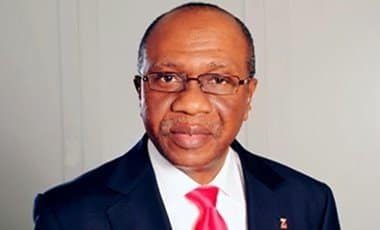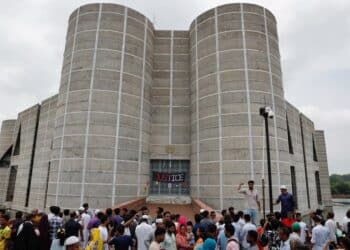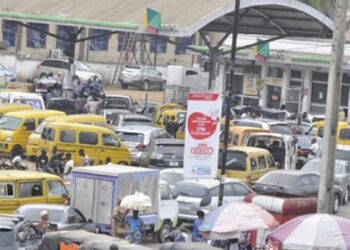THE Central Bank of Nigeria (CBN), on Thursday, reintroduced charges on cash deposits in banks, which would take effect at different dates in different parts of the country.
Director, Banking and Payments Systems Department, Mr. Dipo Fatokun, announced this in a circular entitled: “Circular on nationwide implementation of the cashless policy.”
The circular stated: “Charges for cash deposit by individuals are as follows: Less than N500,000, zero charge; from N500,000 to N1 million, 1.5 per cent; from N1 million to N5 million, two per cent charge; above N5 million, 3 per cent charge.
“Charges for cash withdrawal by individuals are as follows: Less than N500,000, zero charge; From N500,000 to N1 million, two per cent; from N1 million to N5 million, 3 per cent charge; above N5 million, 7.5 per cent charge.
“Charges for corporate cash deposit are as follow: Less than N3 million, zero charge; from N3 million to N10 million, two per cent; from N10 million to N40 million, three per cent; above N40 million, five per cent.
“Charges for corporate cash withdrawal are as follows: Less than N3 million, zero charge; from N3 million to N10 million, five per cent; from N10 million to N40 million, 7.5 per cent; above N40 million, 10 per cent.
“The new charges would take effect from April 1 2017, in the existing cashless states (Lagos, Ogun, Kano, Abia, Anambra, Rivers and the FCT).
“The policy shall be implemented with the charges taking effect on May 1, 2017 in the following states: Bauchi, Bayelsa, Delta, Enugu, Gombe, Imo, Kaduna, Ondo, Osun and Plateau.
“The policy shall be implemented with the charges taking effect on August 1, 2017 in the following states: Edo, Katsina, Jigawa, Niger, Oyo, Adamawa, Akwa Ibom, Ebonyi, Taraba and Nasarawa.
“The policy shall be implemented with the charges taking effect on October 1, 2017 in the following states: Borno, Benue, Ekiti, Cross River, Kebbi, Kogi, Kwara, Yobe, Sokoto and Zamfara.
“The income generated from the processing fees charged above the allowable cash transaction limits shall be shared between the CBN and the banks in the ratio of 40:60.
Existing exemptions remain sustained for: Revenue generating accounts of the federal, state and local governments (lodgements only); embassies, diplomatic missions, multilateral and aid donor agencies in Nigeria are also exempted from all processing fees relating to the cashless policy implementation.
“In view of the above, branches of deposit money banks in the affected states are expected to commence: the enlightenment of their customers on the cashless policy, including the limits; on cash withdrawals and deposits for individuals and corporate bodies, as well as the available e-payment options;
“Training of staff on the cashless policy, in order to provide answers to enquiries and handle issues/customers’ complaints, as well as provide advice on the policy; media communication, to complement existing CBN’s and Bankers’ Committee’s media campaign.
“Engagement of key bank’s customers and other stakeholders. All banks are to ensure that their cashless teams in the affected states liaise properly with the cashless office in the CBN for necessary clarifications and further assistance, if required.”











